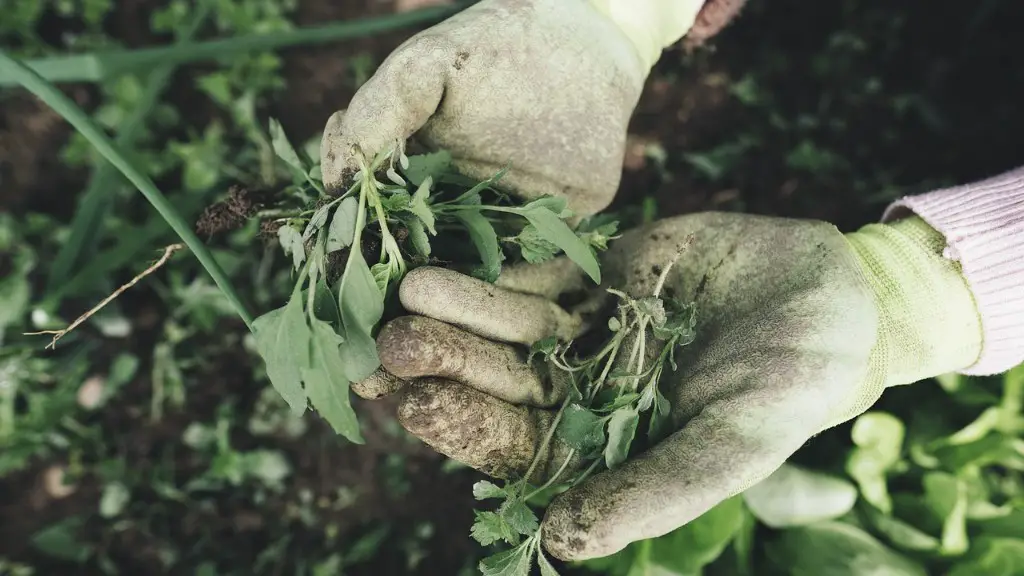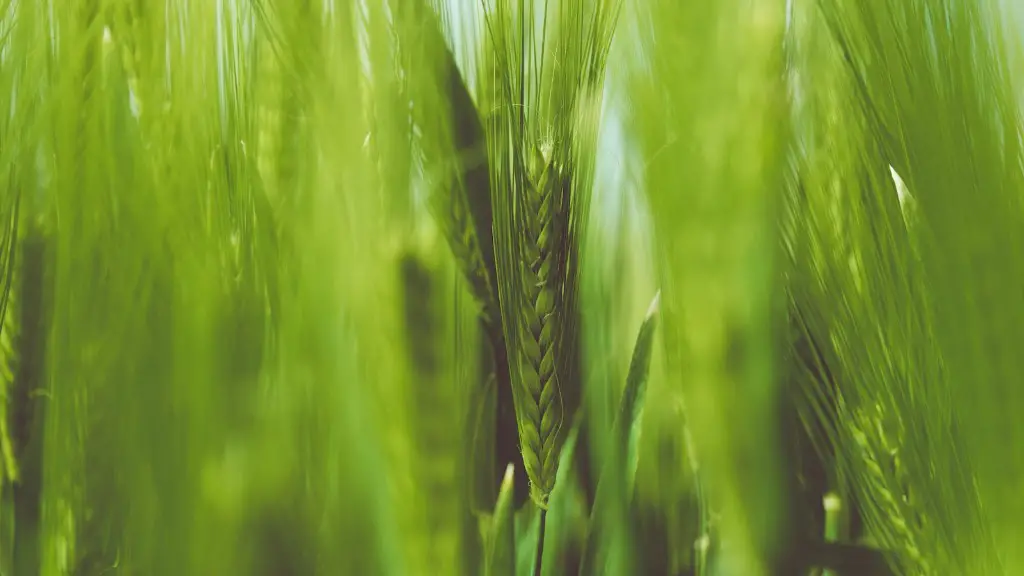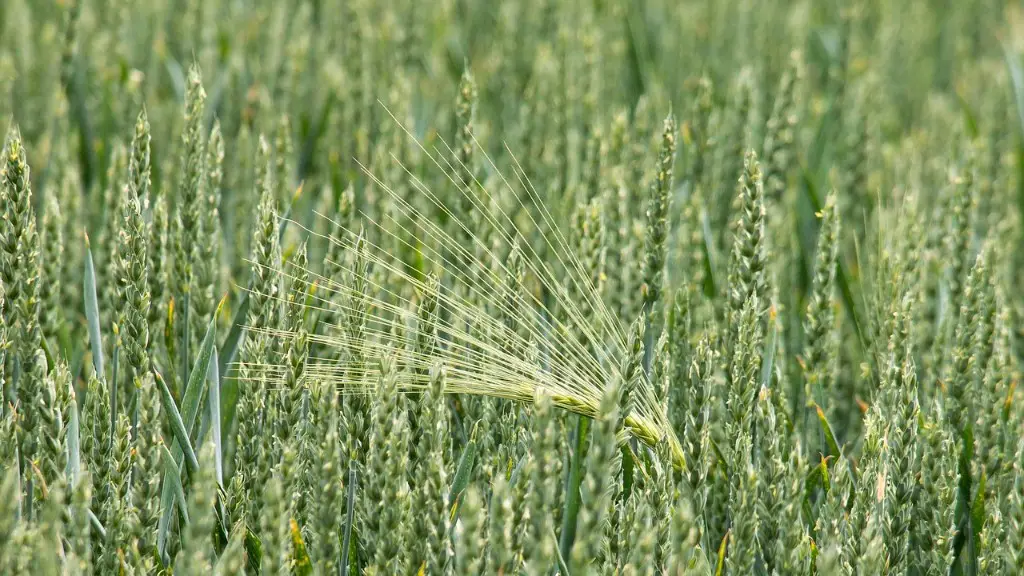Biotechnology is a term used to describe the various techniques that scientists use to manipulate living organisms in order to create new or improved products. In agriculture, biotechnology is often used to create crops that are resistant to herbicides or pests, or to create plants with higher yields.
Biotechnology is important in agriculture for a number of reasons. One reason is that it can help to improve crop yields by making plants more resistant to pests and disease. Additionally, biotechnology can help to improve the quality of crops by making them more nutritious. Additionally, biotechnology can help farmers to more effectively use water and other resources, which can be important in areas where resources are scarce.
What is the importance of biotechnology in agriculture?
Biotechnology provides farmers with tools that can make production cheaper and more manageable. For example, some biotechnology crops can be engineered to tolerate specific herbicides, which makes weed control simpler and more efficient. Biotechnology can also be used to develop crops that are resistant to pests and diseases, which can help reduce the need for pesticides and other costly inputs. In addition, biotechnology can be used to improve the nutritional content of crops, or to produce crops with novel traits that can be used in new and innovative ways.
Agricultural biotechnology has the potential to help reduce greenhouse gas emissions in a number of ways. For example, developing crops that can be used for sustainable biofuels can help displace fossil fuels, and developing fruits and vegetables that stay fresh for longer can reduce food waste.
What are the five advantages of using biotechnology for agriculture development
The benefits of agriculture biotechnology are many and varied. Perhaps most importantly, it can help to improve yields from crops, making them more resistant to environmental stresses and increasing their nutritional qualities. Additionally, it can also improve the taste, texture or appearance of food, and reduce our dependence on fertilizers, pesticides and other agrochemicals.
Biotechnology has a range of potential benefits that could be extremely helpful in meeting some of the challenges faced by the world today. These include the production of sustainable chemicals, energy and other materials, as well as the development of genetically modified crops that can increase food production. Additionally, seawater bioprocesses could be used to produce fuel and chemicals, and bio-processing could be used to create zero-waste products. Finally, carbon dioxide could be used as a raw material in regenerative medicine to create new organs.
What are three examples of how biotechnology might be used in agriculture?
1. Genetically Modified Crops – Biotechnology has helped to create crops that are resistant to herbicides, pests, and diseases. This has led to increased yields and improved food security.
2. Developing of Biofuels – Biotechnology is being used to develop biofuels from renewable sources. This could help to reduce our dependence on fossil fuels and lead to a more sustainable future.
3. Improving Plant Growth – Biotechnology is being used to develop plants that grow faster and are more drought-resistant. This could help to improve food security in areas where water is scarce.
4. Improving Plant Seed Quality – Biotechnology is being used to develop plant seeds that are more nutritious and have a longer shelf-life. This could help to improve the health of people who rely on crops for their main source of nutrition.
5. Improve Animal Health and Breeding – Biotechnology is being used to develop animals that are resistant to diseases and have improved growth rates. This could help to improve the quality of meat and dairy products.
Genetic engineering is a powerful tool that can be used to improve the nutritional content of plants and make them resistant to pests and diseases. This can help farmers to grow crops in areas where they would otherwise be unable to do so, and improve the yield from their land.
What are 3 benefits of biotechnology?
Biotechnology has the potential to provide many advantages, especially in terms of environmental protection, higher yields, and improvements in human health. For example, biotechnology can be used to develop more environmentally friendly products and processes, to improve crop yields and to develop new and improved medicines.
Biotechnology has transformed the field of medicine, allowing for the development of new and more effective treatments for a variety of diseases. In addition, biotechnology is being used to develop new diagnostic tools and to improve agricultural productivity. With its vast potential to improve the quality of life for people around the world, biotechnology is an exciting and rapidly growing field.
What are the pros and cons of agricultural biotechnology
The pros of agricultural biotechnology include the potential to increase crop yields, reduce pesticide use, and make crops more resilient to climate change. The cons include the potential for negative impacts on human health, the environment, and biodiversity. Agricultural biotechnology is a controversial issue, and there are pros and cons to consider before taking a position.
Biotechnology is a hot button issue because it has the potential to drastically improve the quality of life for many people, but it also has the potential to negative impact health and the environment. The pros of biotechnology include nutritional quality improvement, transfer of the desired traits of plants and animals, and the minimization of pesticide use. The cons of biotechnology include a decrease in biodiversity and a negative impact on health and the environment. It is important to carefully weigh the pros and cons of biotechnology before making any decisions about its use.
What is biotechnology in field of agriculture?
Biotechnology in agriculture can help to increase productivity in a number of ways. For example, rDNA technology can help to create more productive crop strains, tissue culture can help to improve plant health and yield, somatic hybridization can help to create more robust plants, embryo rescue can help to save endangered plant species, and molecular diagnostics can help to detect and manage crop diseases more effectively. All of these applications can help to increase agricultural productivity and protect crops from damage or infestation.
Biotechnology can be used to create genetically modified (GM) crops. These crops are created by incorporating beneficial genes into the DNA of the crops. This can help to improve the quality of the crops and the yield. It can also help to make the crops more resistant to pests and diseases.
What is the important objective of biotechnology in agriculture section
The most important objective of biotechnology in agriculture is to produce pest resistant varieties of plants. This will help to reduce the use of pesticides, which can be harmful to the environment.
Biotechnology is the application of scientific and engineering principles to the processing of materials by biological agents to provide goods and services. It is a field that merges the disciplines of biology and engineering. It can be used to develop products and processes for a wide range of industries, including agriculture, food and beverage, pharmaceutical, environmental and energy.
In agriculture, biotechnology is used to develop crops that are resistant to pests and diseases, or that can tolerate environmental stressors such as drought or flooding. This can help to improve yields and reduce the need for pesticides and other chemicals. Biotechnology is also being used to develop new methods of animal husbandry, such as genetically modified (GM) animals that are resistant to disease or that grow faster.
In the food and beverage industry, biotechnology is used to develop new food products and processes, such as brewing beer and making wine. Biotechnology is also being used to create healthier and more nutritious foods, such as foods that are lower in fat or calories.
In the pharmaceutical industry, biotechnology is being used to develop new drugs and therapies, such as cancer treatments and vaccines. Biotechnology is also being used to develop new diagnostic tools and methods, such as DNA sequencing.
In the environmental sector
What are 10 benefits of biotechnology?
Biotechnology offers a number of advantages that can improve the quality of our food supply and make a significant contribution to global food security. These advantages include:
1. Improvement in the nutritional quality of crops: Biotechnology can be used to improve the nutritional content of crops, making them more nutritious and better able to meet the needs of a growing population.
2. Crop growth is improved: Biotechnology can be used to improve the yield of crops, making them more productive and better able to meet the needs of a growing population.
3. Reduction in worldwide hunger – Improves food security: One of the major goals of biotechnology is to reduce hunger and improve food security by increasing the production of food. Biotechnology can help to achieve this goal by increasing the yield of crops and improving the quality of food.
4. Minimal use of pesticides on farms: The use of biotechnology can help to reduce the need for pesticides on farms, as crops can be genetically modified to be more resistant to pests and diseases. This reduces the amount of pesticides that need to be used, which is beneficial for both the environment and human health.
5. More power to farmers – Economic growth: Biotechnology can help to empower farmers and improve
Biotechnology is a field of science that applies biological processes to create products or technologies that can be used in a variety of industries, including healthcare. One of the most important applications of biotechnology in healthcare is the development of new medicines and treatments through genetic engineering.
Genetic engineering is the process of manipulating genes in a living organism to change its characteristics. This can be done in a variety of ways, including directly altering the DNA sequence, or using techniques such as CRISPR to edit specific genes.
Using genetic engineering, scientists have been able to create new medicines and treatments for a variety of diseases and conditions. These include interferon for cancer patients, synthetic human growth hormone, and synthetic insulin.
Biotechnology is an important tool in the fight against disease and illness, and will continue to play a vital role in the development of new and innovative treatments in the future.
Warp Up
Biotechnology is important in agriculture for a number of reasons. First, it can help to improve the quality of crops and make them more resistant to pests and diseases. Second, it can help to increase the yields of crops, which is important for farmers who are trying to meet the demands of a growing population. Third, biotechnology can help to reduce the amount of chemicals and other inputs that are required to produce crops, which can reduce the environmental impact of agriculture. Finally, biotechnology can help to develop new and better methods of producing food, which can make the world a better place.
Biotechnology is important in agriculture for many reasons. It can help farmers to produce more food with fewer resources, to create new crops that are more resistant to pests and disease, and to develop new products and processes that are more environmentally sustainable. Additionally, biotechnology can help us to better understand the complex interactions between plants, animals, and the environment, and to develop new ways to improve food production and food safety.





